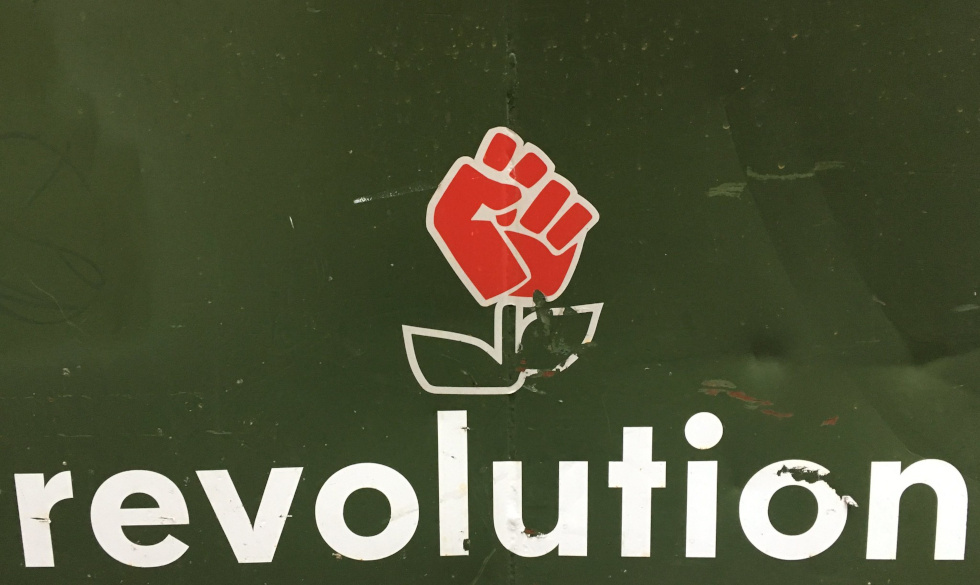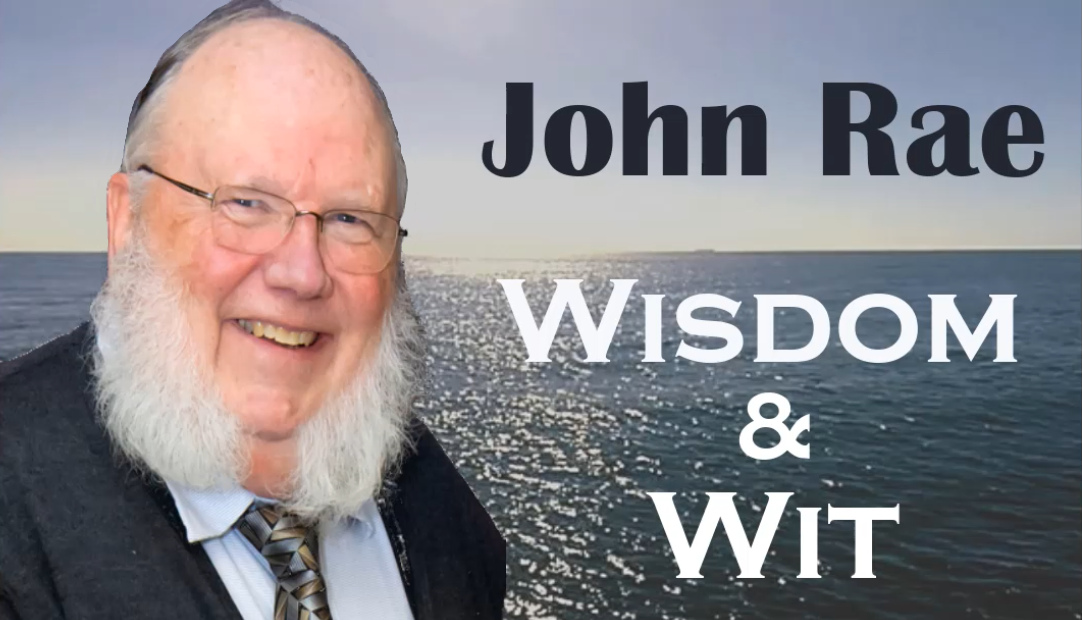In the 1980’s, when my wife applied for a new job, she put on her resume that she was on the Church Board of Elders and that she also taught Sunday School. Back then, in the eyes of the prevailing culture, this was seen as a positive set of circumstances, today, not so much. What has happened?
Arron M. Renn, in a February 2022 article in First Things Magazine, maps out the trajectory of the change in how Christianity has been seen and valued by Western secular culture, since the 1950’s. He breaks down this change into three stages:
Positive (1950 to 1994) – Society at large has a mostly positive view of Christianity. To be a known as a good, church going person is part of being an upstanding citizen. Publicly being a Christian is a status-enhancer. Christian moral norms are the basic moral norms of the society. He uses 1994 as the end point because it is the start of the build up to Generation Z.
Neutral (1994 - 2014) – Society takes a neutral stance towards Christianity. Christianity no longer has privileged status but is not disfavoured. Being publicly known as a Christian has neither a positive nor negative impact on one’s social status. Christianity is a valid option within a pluralistic public square. Christian moral norms retain some residual effect.
Negative (2014 – Present) – Society has come to have a negative view of Christianity. Being known as a Christian is a social negative, particularly in the elite domains of society. Christian morality is expressly repudiated and seen as a threat to the public good and the new public moral order. Subscribing to Christian moral views or violating the secular moral order brings negative consequences. Society sees itself as post-Christian. Renn uses 2014 because it is the start of the Obergefell same-sex marriage case in the U.S.
With a sense that the positive was diminishing, Christian evangelism, in the mid 1970’s, adopted a seeker-sensitive form of outreach which was predicated on an underlying friendliness towards Christianity. Protestant seeker-sensitive churches downplayed denominational affiliations, distinctiveness, and traditions. They adopted informal liturgies, contemporary music and preached in a therapeutic register and they marketed themselves as approachable and non-threatening.
In the neutral world the characteristic evangelical strategy was cultural engagement. The gospel was emphasised through social engagement for example, in helping the poor and working for “social justice”. At a personal level, the therapeutic value of being a Christian was still stressed. This was a form of evangelism that depended on osmosis more than proclamation.
In the negative phase, the rise in the social pecking order of the various gender ideologies have usurped the place of Christian morality in the public sphere. To date there has been no development of a comprehensive ‘negative-world’ ministry strategy. Seeker-sensitive and cultural engagement are still the two main strategies being pursued, depending on each individual church’s reading of their particular target market.
Taking advantage of this void, the overt enemies of the Church are doing things like lobbing for a withdrawal of the tax status of the Churches and their affiliated organizations. The scapegoating of Christianity is seen as being close to morally acceptable. Look at the 60 churches that were vandalised after the media story about the Residential School graves.
In a sense we have come full circle and are now standing in the lineage of the original twelve disciples sent out, by Jesus, in Matthew 10:16, “Behold, I am sending you like lambs into the midst of (Post-Christian) wolves. So be as wise as serpents and as innocent as doves.” As latter day “lambs of God” how do we sing the Lord’s song in this strange new land in which we find ourselves?
As a way of ruminating about this question I’d like to use some thoughts from Jordan Peterson, Malcolm Muggeridge, the Danish philosopher Soren Kierkegaard along with some observations from a pastor of a non-denominational church in Moncton N.B.
For Jordan Peterson, the user interface that a religion presents in the public domain can make or break its effectiveness as a being seen as a purveyor of deep meaning. If the primary public interface is a ‘system of beliefs’, then that religion puts itself in the arena as a peer-to-peer player with other systems of belief. In doing this it runs the risk of being type cast as nothing more than another competing ideology in the marketplace of ideas. Richard Dawkins attempts to type cast Christianity as nothing but an antiquated belief system that is based on an irrational faith in the ‘flying spaghetti monster’, in a “nothing to see here folks, lets just move along” dismissive style. It is an attempt to mock and belittle Christianity.
In the current negative phase, the bulk of opposing systems of belief are based in the current crop of post-modern gender ideologies. For Peterson the question is, are these belief systems purveyors of meaning or are they purveyors of bewilderment. For him their internal contradictions will cause them to, at some point, collapse under the weight of their own irrationality but the damage that they are doing is real and long lasting. “Woe to the shepherds who are destroying and scattering the sheep of My pasture!” declares the Lord, Jeremiah 23:1
These gender ideologies have an implied creed and the first line in that creed is that there is nothing but the ‘stuff’ (the material) of the universe. There is no transcendent reality beyond what we can sense or measure. We are alone in the universe and just have to make the best of it. Our “human nature” (whatever that is?) is wholly created by our social conditions. There is no notion that we are made in the ‘image of God’. Politics, then, is seen as our only source of “salvation” (whatever that is?). Followers of these ideologies would see themselves as ‘materialists’ or functional atheists.
As an example of this look at the current ‘woke revolutionary fad’ of not assigning a child any sex or gender at birth. If, according to the prevailing ideology, sex/gender is just a “social construct” then the child hasn’t been around long enough to be socialized and therefore their nature is still in a fluid state. There is no “male and female He created them and blessed them”, Genesis 5:2, in the ultra woke world.
Malcolm Muggeridge makes an interesting observation - that if the appetite for the transcendent is denied then people will create idols from anything. He says that “Sex is the mysticism of materialism and the only possible religion in a materialistic society.” It is interesting that the materialistic ideologies, of our day, are saturated with sex. These ideologies have become pseudo religions, and in this hyper individualistic age they market themselves as a source of some sort of personal salvation.
For example, imagine telling a 13-year-old female that her personal fulfilment consists in undergoing the surgical sacrament of a radical double mastectomy followed by a life long weekly ritual of consuming a hormone cocktail that generates irreversible changes in her mind and body. This is the transgender cross that she is told she must bear, and yet young people are lining up to undergo this bizarre attempt at being born again.
Jordan Peterson says that of all the manifestations of Christianity, Catholicism is the most “sane”. It has a well-developed and rationally defensible system of beliefs, but it also allows a person to enter into the drama of existence and it has a feature rich and tactile interface to the mystery of the transcendent, that has been both fully Beta and Alpha tested. It is not an easy religion though. It demands your life. Climbing to Golgotha has a fairly high degree of difficulty. For Peterson this is a good thing since at some deep level we crave difficulty since it is the only means to maturity and fulfilment. Jesus broaches this when he talks about the virtue of the narrow path.
The Danish philosopher Soren Kierkegaard quipped that “if we make things too easy then people will seek out voluntary difficulty”. We seem to innately know the virtue of difficulty. An extreme example of this is the 13-year-old female’s willingness to undergo radical surgery as her narrow path to some transgendered promised land. By evangelizing mainly by using seeker sensitive and cultural involvement strategies are we making things a bit too easy and therefore doing a disservice to the profundity our Christian faith?
If at the ontological root of the post-Christian ideologies there is the subliminal quest for encountering the ‘real presence’ of the mystical and the willingness to take the difficult journey to reach that place where one can have sacred rendezvous with the transcendent God. The question then becomes, does this open up, for the Church, a line of communication over which the Love of Christ can be transmitted to those who are searching? Even if, at the moment, they are fixated on sniffing out every false trail, Jesus says that those who honestly seek will indeed find.
The Catholic Church has in her inventory all the components required for each of us to build the totality of our lives on the rock Christ Jesus but is she suffering supply chain and logistics issues getting these moral and mystical materials out into the wider marketplace? Is the new “negative” world actually a field, in disguise, where the harvest getting close to being ripe? Are the transgendered tares getting close to the end of their best before date? Is the Church adequately preparing herself and the labourers, of the field, for a potential harvest of souls?
I’ll tell you a story: I had a nice chat with a minister of a successful non-denominational church in Moncton N.B. This church could be considered the quintessential example of the “seeker sensitive” and “cultural engagement” forms of evangelism. They had all the upbeat contemporary music and a lot of spiritual and interpersonal energy. Just after the morning hymn sing the ushers would do a run to Tim Hortons for anyone who wanted to nurse a ‘double-double’ to keep awake through the sermon. It was a church that was beyond “cool”. They had a thriving community outreach through a soup kitchen, in the church basement. It was a truly happening and friendly place.
He said to me, “I really envy you being a Catholic for you have access to the real presence of Christ in the Eucharist! I wish that we had that available to us, even though we have a dynamic and Christ centred community it is not quite complete.” He was craving the mystical. Protestants who are converts to the Catholic Church, myself being one, have told me that they came into the Church for the Eucharist and not so much for the cultural engagement.
Is the contemporary Catholic Church over focusing on “seeker sensitive” and “cultural engagement” strategies all the while dismantling her “mystical” reserves just as the appetite for the mystical is starting to come into its own, in our current cultural trajectory?
I’d like to close with a quote from Henri Nouwen:
“It is my growing conviction that in Jesus the mystical and the revolutionary ways are not opposites, but two sides of the same mode of experiential transcendence. I am increasingly convinced that conversion is the individual equivalent of revolution. Therefore, every real revolutionary is challenged to be a mystic at heart, and one who walks the mystical way is called to unmask the illusory quality of human society”.
Photo credit Alan Levine






